 Flag of Mongolia Flag of Mongolia Twelve different parties and three separate coalitions and a record number of 498 candidates, are competing for 76 seats in the parliament or State Great Khurai. Another 2,288 candidates are vying for local council positions. Mongolia is suffering through its worst economic crisis since 2008. The economy and foreign debt repayment are two of the main issues. The electoral system has been changed since the last election in 2012 in that seats distributed through proportional representation no longer exist. This will mean that smaller parties will win less seats: "In the 2012 elections the 76 members of the State Great Khural were elected by two methods; 48 are elected from single-member constituencies and 28 from a nationwide constituency by proportional representation. However, on 5 May 2016 the electoral law was amended to remove the proportional representation seats.[2] The changes are expected to marginalise smaller parties, and also removed the right of 150,000 Mongolians expatriates to vote, as they will not be registered in a specific constituency.[2]" To win a candidate must get at least 28 percent of the vote or a by-election is held. For a vote to be valid at least 50 percent of voters in a constituency must have voted. The government or coalition winning the majority of seats gets to form the government and appoint the Prime Minister. Bolormaa, an accountant complained that there were so many candidates that it was difficult to know whom to vote for. The main focus of the Mongolian economy is mining. The low cost of commodities has hurt the sector and foreign investment is not high. Agriculture and livestock production is also a part of the economy. About 80 percent of Mongolian exports go to China. Much coal is exported to China but the demand has dropped. The two major parties in Mongolia are the Mongolian People's Party (MPP) and the Democratic Party (DP). Power shifts between the two parties but the DP has ruled for the last four years. The power base for the DP is in urban areas particularly the capital Ulaanbaatar. The opposition claims that the DP has wracked up a huge foreign debt to display expensive infrastructure projects that will be difficult for Mongolians to pay for. As MPP member Munkh_Orgil Tsend put it: "Foreign debt has become a critical issue facing our country, As I see it, our country can't pay back our foreign debt in the next few years. So most likely we have to conduct negotiations with the lenders… Current debt ratio to GDP is 55 percent and likely to reach 75 percent next year."Tsend is running as a candidate in the elections. Enkhbold Zandaahuu. the chair of the DP countered:"As of the last three years, we have built 2,720km of roads and connected seven provincial capitals with Ulaanbaatar. In 2016, we are planning to build 1,284km of roads… We laid the foundation for great development work that was not done in the last 100 years..The government will be only responsible for this and rest of the debt will be paid by private-sector companies. There is no country in the world that developed without loans." There is a huge gap between rich and poor, with one-third of Mongolians living in poverty. The MPP promises to expand welfare services, and to give cash handouts to low-income households and single mothers. The party also promises to develop coal and metallurgical industries and reduce dependence on Russia for fuel. Minor parties complain that the two large parties protect their vested interests while those of ordinary Mongolians are ignored. Gankhuyan Khassuuri, an independent candidate said: "Ninety-five percent of all bank savings are held by about 1,000 rich families. Mongolians thought and acted as if there is no other choice… I want to show that we have a third option. These two [parties] attempt to rule through their membership. However, about 20 or 30 wealthy people with offshore accounts hide behind these two parties and have been ruling the country in turn for 26 years."Social activist Tseren Enebish said that it was time to get rid of both the DP and MPP and end corruption and debt in Mongolia. Tomorrow we will see if voters listen.
0 Comments
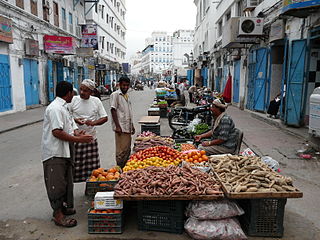 Traders on a street in Mukalla Traders on a street in Mukalla The casualty count varies but one source puts the toll at 35 dead in the Yemeni port city of Mukalla. Another twenty-five people were said to be wounded according to health official, Riad al-Jalili. Mukalla was held for a lengthy period by Al Qaeda in the Arabian Peninsula (AQAM) until a recent offensive by forces loyal to the recognized government of Premier Hadi drove them out in April after AQAM held it for a year. However, the attacks appear to have been launched by the Islamic State indicating their growing strength in Yemen. Mukalla is the capital of the Province of Hadramawt. A report in Al-Arabiya claims that at least 18 people were killed and claims the coordinated attacks were carried out by ISIS or the Islamic State. The attacks took place just as soldiers were about to break their day-long fast during the month of Ramadan. The IS claimed responsibility for the blasts through their on-line news agency Amaq. The first blast was at a checkpoint on the western approaches to Mukalla as the attacker detonated his suicide vest. Another blast was of a bomb-laden car at the military intelligence headquarters. The final blast was from an improvised explosive device that exploded just as the soldiers were to begin their meal. On May 23rd IS launched a suicide attack in the southern port of Aden that killed 40 army recruits. Militant groups have been able to take advantage of the civil war between Houthi rebels and the recognized government which is backed by the Saudis and other Gulf States. The government forces have been able to retake a considerable amount of territory in the south. The capital Sanaa and the north are still held by the Houthis. Al Qaeda in the Arab Peninsula (AQAM) has gained much territory during the civil strife. Yemeni security officials claim that though AQAM and the IS are ideological rivals and compete for fighters there is an overlap between the two groups. A security official said: “Sleeper cells still exist in Mukalla and we are working against them every day. Since the liberation of the city, security forces have arrested hundreds of Al Qaeda fighters in raids, uncovered plots and seized around 20 explosive cars.” According to a report in the Middle East Eye, in one attack the suicide bomber asked soldiers if he could eat with them and then blew himself up. The report gives a higher casualty figure of 42. The governor of Hadramawt Province, Ahmed bin Breyk said: "Mukalla witnessed five suicide attacks in four areas," At first the attacks were said to have killed 17 soldiers plus a woman and a child who were passing by but later the toll was raised to 42. The IS report claimed that 8 of its suicide bombers killed 50 Yemeni security forces. Militants still control several towns in the Wadi Hadramawt valley. The Pentagon admitted last month that a small number of special forces had been involved in the operation to drive Al Qaeda out of Mukalla. Now that Hillary Clinton is certain to be the presidential candidate for the Democrats leftists are faced with the usual situation in US politics of picking the lesser of two evils. In this case that would presumacbly mean voting for Clinton and helping her defeat Donald Trump.
Bernie Sanders, self-declared socialist, engaged in an exciting run during the primaries which energized many leftists within the party and created important debates about issues. However, he is now turning his fire on Trump and it seems clear that he will end up supporting Clinton while trying to add some progressive planks to the Democratic platform. Elizabeth Warren another popular figure among leftists has also endorsed Clinton. After all is said and done the Democrats have a candidate who has strong links to Wall Street and is likely to have a hawkish foreign policy that already brought the US the disaster of Libya. There are alternatives to the candidates of the two main parties, Jill Stein of the Green Party is one. Stein is the presumptive nominee of the Green Party. The convention is not until August 4. Stein represents herself as a Plan B to continue fighting the revolution that Sanders talked about. Stein is not worried that Elizabeth Warren will be able to keep leftists within the Democratic fold saying: “Elizabeth Warren has very good proposals regarding Wall Street, but she really has not been leading the charge for single-payer health care … and is pretty much a war hawk in alignment with Hillary Clinton.” Warren is very much a pro-Israel politician in contrast to Stein who is quite critical of Israeli policies. Stein has accused the Israeli government of "apartheid, assassination, illegal settlements, blockades, building of nuclear bombs, collective punishment, and indefinite detention, all in defiance of international law". Stein is critical of Obamacare and recommends a "Medicare-for-All," health care system. Stein herself is a physician. A recent poll by Bloomberg, shows that only 55 percent of Sanders voters are ready to vote for Clinton. There could be a large exodus from the Democratic party by Sanders voters. There is also likely to be a migration towards the Libertarian Party and their nominee Gary Johnson by Republican voters who cannot stomach Trump. While the platform of Sanders and Stein are similar, Stein opposes the use of drones unlike Sanders. Stein is in favor of free college tuition as in Finland. She would also cancel all student debt. Stein expects to get on the ballot in all but three states. Stein is also beginning to register in the polls reaching 5 percent in one recent poll and 4 in another. Stein is not concerned by the fact she may hurt the Democrats. She will campaign even in states where she might cause the Democrats to lose. She is critical of Clinton just as she is of Trump saying: “While it's horrifying to hear the draconian things that @realDonaldTrump is talking about, we've actually seen @HillaryClinton doing them.” She also questioned Clinton as a representative of feminism saying: “I think it’s an offense to the concept of feminism to say that Hillary Clinton—and her advocacy for war, for Wall Street and for the ‘Walmart Economy’—represents feminism.” Of course, both Stein and Johnson are represented as spoilers. Giving the populace an alternative to vote for rather than Tweedle-Dee and Tweedle-Dum spoils things for those who think that there should be no alternative to the two party system. The president, according to this narrative, should be the nominee who gets the most votes in a pure two party race. When there are others running, votes which should have gone to one of the two parties go elsewhere and spoil the game. Its much cheaper if the establishment has only two parties to buy. 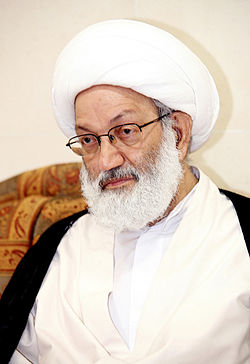 Sheikh Qassim Sheikh Qassim The commander in chief of the Bahrain Defence Force, Shaikh Al-Khalifa, met with the Chief of the UK Defence Forces General Sir Nicholas Houghton. The visit comes just as the UN human rights group has condemned the Bahrain government move to strip Shia cleric Sheikh Isa Qassim of his citizenship. The visit took place less than a day after Bahrain took the controversial action. Last Monday, the UN body said that the move was "clearly unjustified". Bahrain is ruled by a monarchy consisting of Sunnis even though the majority in Bahrain are Shia. Human rights campaigners claim that the meeting gives Bahrain a "green light" to continue repression of dissent in the kingdom. Protests in the capital have been banned for some time. In diplomatic circles there has been increasing criticism of Bahraini suppression of dissent. Iran, which supports the Shia opposition criticized the removal of Qassim's citizenship. Iranian general, Qassem Suleimani, who heads the elite Revolutionary Guard's overseas arm said that the move would create armed rebellion. It could also create fears that UK interests in the region could be under threat. A spokesperson for the UN Human Rights Office, Ravina Shamdasani said the move was against international law: “Given that due process was not followed, it cannot be justified.” She admitted that under international law citizenship could be revoked, but the act must serve a legitimate purpose, and be proportionate to the interests protected and there must be some recourse to appeal. Shamdassani went on: “Given the numbers that we're talking about in Bahrain, we're talking a minimum of 250 people who have been deprived of their nationality, but there are some estimates that go much higher than that. Given that, it is clearly unjustified.We are very concerned at this intensified crackdown on the freedoms of expression and association and the right to a nationality. We urge the Bahraini authorities to seek to de-escalate the situation – instead of taking such damaging steps in quick succession with a serious risk of escalating the situation." The US, a close ally of Bahrain, was critical of the decision. John Kirby, the State Department Spokesperson, said that they were alarmed by the decision saying: “We remain deeply troubled by the government of Bahrain's practice of withdrawing the nationality of its citizens arbitrarily.” The headquarters of the US Fifth Fleet are in Bahrain. The Bahrain Institute for Rights and Democracy (BIRD) claimed that the Bahrain move would escalate tensions and could lead to violence. Human Rights Watch also expressed concern complaining that the country was now in its darkest days since the protests against the monarchy were repressed in 2011. Sayed Alwadeai, director of advocacy for BIRD said: “Bahrain's ally the UK did not even postpone a meeting on military cooperation, let alone issue a statement on this gross repression of Bahrain's civil society. Britain is giving Bahrain a green light for repression.“ Also, the meeting came on the same day that a court increased the time in jail for Nabeel Rajab, an activist who was re-arrested on June 13 for "spreading false news and rumors about the internal situation in a bid to discredit Bahran". The meeting also is coming after a deal between Bahrain and the UK that will allow a new UK naval base in the country. UK naval commandos have been training Bahraini security forces in sniping techniques. MP, Tim Farron said: “It’s a sad demonstration of just how little this government cares about human rights when a top UK general visits Bahrain the day the UN has condemned their regime for persecuting religious leaders and crushing political opposition. Britain cannot claim to champion universal rights while pandering to these regimes. It undermines all of the great work done by the Foreign Office and the Department for International Development worldwide." Alan Hogarth, Amnesty International UK head of government affairs said: “Since its shiny new naval base in Bahrain was announced, the UK has apparently been prioritising its military ties rather than rocking the boat over the Bahrain’s increasingly dismal human rights record. With ongoing arrests, a long-running crackdown on protests, frequent reports of torture in custody and a host of prisoners of conscience now behind bars, the situation in Bahrain gets worse by the week." Hogarth said that the UK should completely revamp its relationship with Bahrain and should be speaking out publicly about violations of human rights in Bahrain. Yet Nicholas McGeehan, a researcher at Human Rights Watch said: "I don’t think any credible observer believes the UK is intent on anything other than sticking as close to the Bahrainis and the Saudis and the Emiratis as possible, irrespective of their conduct and the gravity of their rights abuses. The US has been stronger in its criticism, but if it is truly interested in a stable Bahrain, it needs to do and say more to arrest this slide." However, even though the US has strongly criticized Bahrain it has done nothing to stop the repression. There have been other recent repressive moves by Bahrain. On June 14, the authorities suspended Al-Wefaq the main opposition group. Its headquarters were closed, funds seized, and it had to suspend activities. On June 11 prominent human rights activist Zainab al-Khawaja claimed she was forced into exile after being threatened with being re-arrested.  Free Alaradi Poster Free Alaradi Poster Salim Alaradi finally arrived back in Canada after being detained for nearly two years in jail in the United Arab Emirates (UAE). He arrived back in Canada at the Pearson International Airport at around 6 PM on Monday. Alaradi said on landing: “I’m overwhelmed to be home after the last two years. I cannot express how I’m feeling. It’s amazing.” Alaradi also said: "I am home today because thousands of people in Canada and from the world spoke out. I'm grateful to each of you." Alaradi thanked the UN Human Rights Commission, his family, members of the Canadian government and the lawyers who all worked towards having him freed. He said the campaign for his release was "unbelievable". Alaradi said: “I am home today because thousands of people in Canada and the world spoke out. I’m grateful to each of you.” Alaradi's daughter, who also worked tirelessly for his release, thanked all those who pushed for her dad's release. The family make their home in Windsor Ontario. Alaradi said his main concern was his health saying: “I will need time to recover and to get medical treatment. I am looking forward to settling in Windsor with my family and enjoying a Canadian summer.” Alaradi, the father of five, was arrested in Dubai back in August of 2014. He spent almost a year and a half in prison with no charge. He was tried on terrorism-related offenses earlier this year. The terrorism charges were later dropped and he was charged with providing supplies to groups and collecting donations without government approval. Human rights activists claimed there was no evidence against Alaradi and the charges were false. Although he was acquitted of all charges on May 31st, he had problems leaving the country because he was on a no-fly list. However on June 3 he was able to travel to Turkey where he received medical attention. He apparently lost about 40 pounds in detention and was in considerable pain. The UN Working Group on Arbitrary Detention claims that Alaradi and 4 other business men arrested were deprived of sleep for up to 20 days, beaten on the hands and legs and given "electric shock with an electric chair". Alaradi had a business manufacturing appliances in the UAE and selling them throughout the Middle East and Africa. Marwa, Alaradi's daughter, who worked to tirelessly to free her father gave advice to anyone who faces such an ordeal: "Just speak up and don't be silent. Just tell the world what you're going through. You will find help." Alaradi had come to Canada from the UAE in 1998. He lived in Vancouver. He went to the UAE in 2007 to run an appliance business with his brother. |
Like this writer's work please donate:
Ken Hanly
Ken is a retired philosophy professor living in the boondocks of Manitoba, Canada, with his Filipina wife. He enjoys reading the news and writing articles. Politically Ken is on the far left of the political spectrum on many issues.
Archives
November 2016
Categories
All
|
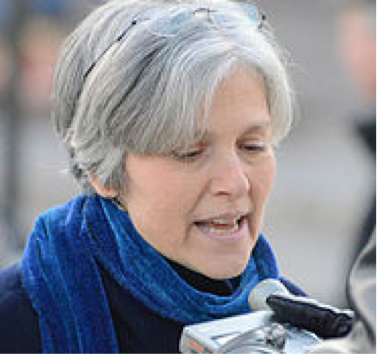
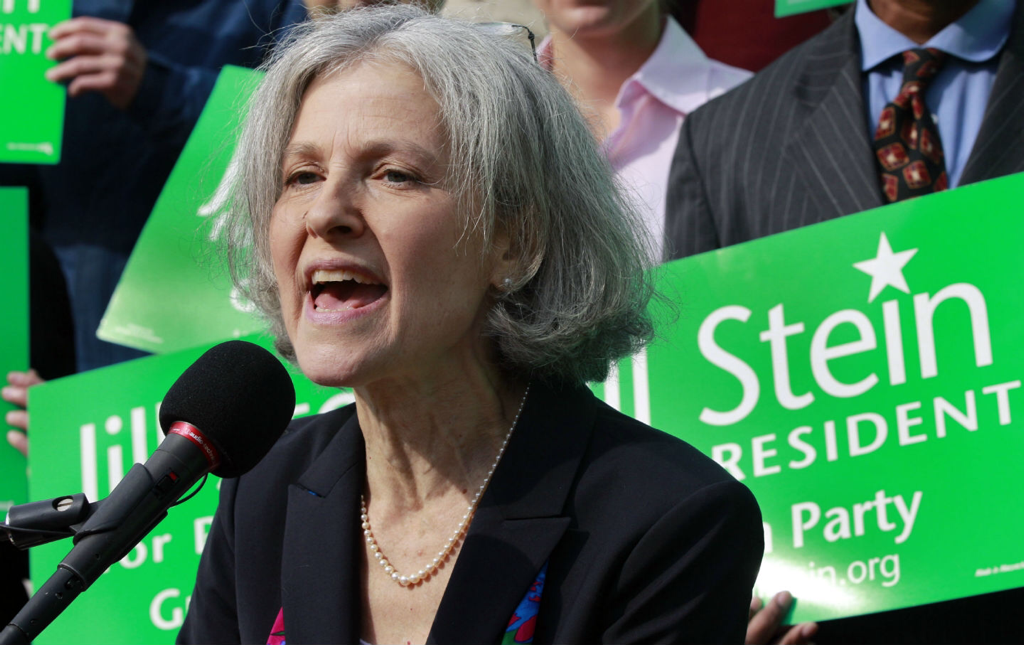
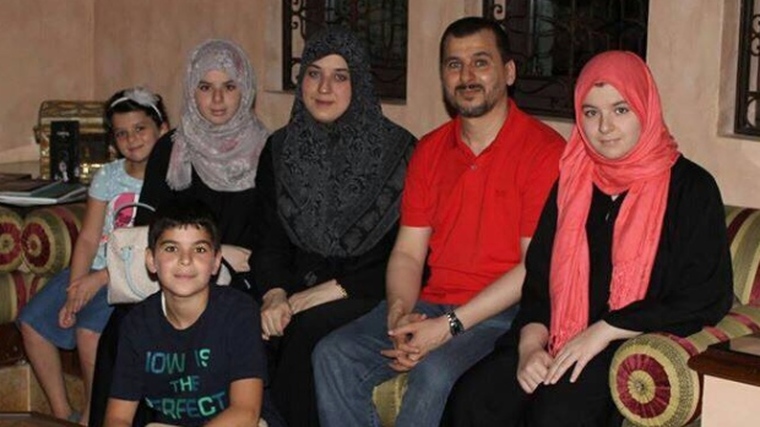
 RSS Feed
RSS Feed

